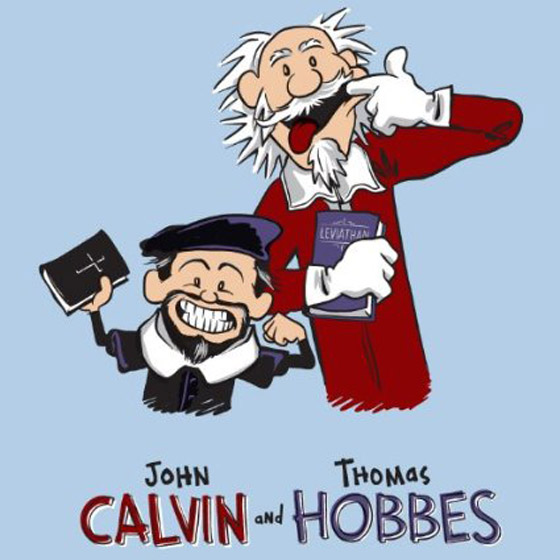
Categories: Bill Watterson, Calvin and Hobbes, Cartoons
Home KGB on Bluesky KGB on Substack
KGB Stuff Commentwear E-Mail KGB
Donate via PayPal
 |
KGB ReportObservations by and for the vaguely disenchanted.
|
Tempting the wrath of the whatever from high atop the thing. ISSN: 1525-898X |
 |
"Barkes writes like he speaks... incoherently."
« 2013-08-30
Home Page
2013-08-28 »
John Locke FRS (August 29, 1632 - October 28, 1704), widely known as the Father of Classical Liberalism, was an English philosopher and physician regarded as one of the most influential of Enlightenment thinkers. Considered one of the first of the British empiricists, following the tradition of Francis Bacon, he is equally important to social contract theory. His work had a great impact upon the development of epistemology and political philosophy. His writings influenced Voltaire and Rousseau, many Scottish Enlightenment thinkers, as well as the American revolutionaries. His contributions to classical republicanism and liberal theory are reflected in the United States Declaration of Independence. (Click here for full Wikipedia article)
-----
A dreamer lives forever, and a toiler dies in a day.
All men are liable to error; and most men are, in many points, by passion or interest, under temptation to it.
But there is only one thing which gathers people into seditious commotion, and that is oppression.
Children (nay, and men too) do most by example.
Children should from the beginning be bred up in an abhorrence of killing or tormenting any living creature...
Education begins the gentleman, but reading, good company and reflection must finish him.
Every man has a property in his own person. This nobody has a right to, but himself.
Fashion for the most part is nothing but the ostentation of riches.
Good and evil, reward and punishment, are the only motives to a rational creature: these are the spur and reins whereby all mankind are set on work, and guide
Habits wear more constantly and with greater force than reason, which, when we have most need of it, is seldom fairly consulted, and more rarely obeyed.
He that will have his son have a respect for him and his orders, must himself have a great reverence for his son.
I have always thought the actions of men the best interpreters of their thoughts.
It is one thing to show a man that he is in error, and another to put him in possession of the truth.
Liberty is to be free from restraint and violence from others.
New opinions are always suspected, and usually opposed, without any other reason but because they are not already common.
Our deeds disguise us. People need endless time to try on their deeds, until each knows the proper deeds for him to do. But every day, every hour, rushes by. There is no time.
Our incomes are like our shoes; if too small, they gall and pinch us; but if too large, they cause us to stumble and to trip.
Reading furnishes the mind only with materials of knowledge; it is thinking that makes what we read ours.
Religion, which should most distinguish us from the beasts, and ought most particularly elevate us, as rational creatures, above brutes, is that wherein men often appear most irrational, and more senseless than beasts.
So difficult it is to show the various meanings and imperfections of words when we have nothing else but words to do it with.
The dread of evil is a much more forcible principle of human actions than the prospect of good.
The end of law is not to abolish or restrain, but to preserve and enlarge freedom.
The only fence against the world is a thorough knowledge of it.
The people cannot delegate to government the power to do anything which would be unlawful for them to do themselves.
The reason why men enter into society is the preservation of their property.
There cannot any one moral Rule be propos'd, whereof a Man may not justly demand a Reason.
There cannot be a greater rudeness, than to interrupt another in the current of his discourse..
There remains still in the people a supreme power to remove or alter the legislative, when they find the legislative act contrary to the trust reposed in them.
Virtue is harder to be got than a knowledge of the world; and, if lost in a young man, is seldom recovered.
We are like chameleons, we take our hue and the color of our moral character, from those who are around us.
What worries you, masters you.
Whenever violence is used, and injury done, though by hands appointed to administer justice, it is still violence and injury, however colored with the name, pretenses, or forms of law
Where there is no desire, there will be no industry.
Wherever Law ends, Tyranny begins.
Categories: John Locke, Quotes of the day
Home KGB on Bluesky KGB on Substack
KGB Stuff Commentwear E-Mail KGB
Donate via PayPal
« 2013-08-30
Home Page
2013-08-28 »